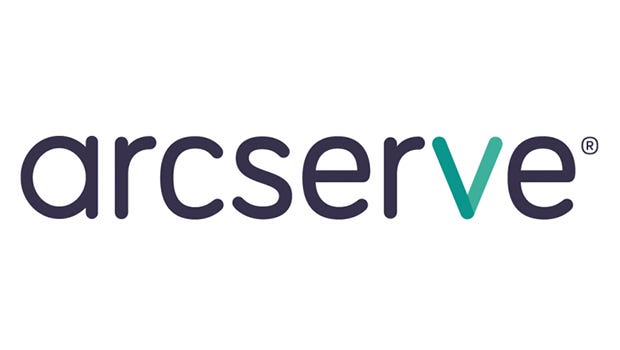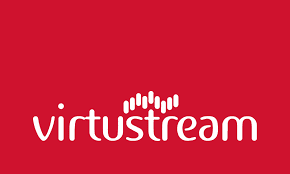These providers exemplify what it takes to succeed in cloud storage.

 Being a successful cloud storage provider means making it easy for end users to securely and seamlessly manage, access and collaborate on data from anywhere on any device, and not taxing customers with egress charges in local regions.
Being a successful cloud storage provider means making it easy for end users to securely and seamlessly manage, access and collaborate on data from anywhere on any device, and not taxing customers with egress charges in local regions.
With the rapid growth of technologies that malicious hackers employ, data security is at more risk than ever before and it can lead to heavy losses if a company is compromised. Cloud storage providers have to create solutions to secure the data and offer some proof that the solution is effective.

Ingram Micro’s Jon Tonthat
IDC, members of the Channel Partners Business and Editorial Advisory Boards, and other industry experts shared their views with us on what it now takes to succeed in cloud storage.
“To thrive in today’s digital economy, a cutting-edge cloud provider must offer fast and easy access to multiple storage types and tiers, to accommodate for a wide array of application demands that exceed on-premises capabilities and provide agility, elasticity, performance and scale at competitive costs with simple management,” said John Tonthat, executive director, Ingram Micro, and editorial advisory board member.
Deepak Mohan, research director in IDC’s enterprise infrastructure practice, covering research on cloud infrastructure, said given the market has evolved and matured significantly in the last 10 years, a successful provider today needs to address the following:
Low total cost of ownership.
Be easy and intuitive to use (for object storage, that typically means compatibility with AWS today).
Have tiers of services to cater to a range of use cases and performance requirements.
Support automation and APIs to enable functionalities like automatic tiering.
APIs to enable monitoring, audits and data/storage management functions.
The ability to offer higher-layer services.

WTG’s Vince Bradley
Vince Bradley, WTG‘s president and CEO, and business advisory board member, said the competitive landscape is growing as the list of providers continues to expand, making it tougher to compete.
“The use of online storage has become a utility and its value is equated with additional collaborated applications,” he said. “Service is being incorporated into suites such as Google Drive and G Suite. The added value of the collaboration of data within the suite is hard to compete with standalone services. The ability for third-party integration is critical to customize productivity suite offerings.”
Our other “top 20” lists include providers of UCaaS, enterprise telephony, SD-WAN, antivirus software, colocation, and backup and DR. We also highlighted 20 top channel thought leaders. |
There are several factors challenging the cloud storage market – including the amount of vendors – but security has to be the No. 1 challenge they face, said Jim Lipps, Cyxtera’s vice president of sales engineering.
“Many companies are slow to adopt cloud because of the fear of their data being stolen,” he said. “With the upcoming evolution of 5G, data is going to grow at an incredible rate as the pace of IoT is going to skyrocket. Speed and ease of use will be the key to cloud storage providers’ success.”
Also, there is a lot of free storage available and expansion is inexpensive, Bradley said.
Based on feedback from industry experts, business and editorial advisory board members, Gartner’s Magic Quadrant for Public Cloud Storage Services Worldwide and recent news reports, we’ve compiled a list, in alphabetical order, of 20 cloud stage providers that are making the most of the current competitive landscape and charting success.
Alibaba Cloud
 Tonthat said Alibaba Cloud is an example of a successful cloud storage provider. Gartner lists the Chinese company as a challenger and says its current portfolio of storage services demonstrates the vendor’s potential to “become an alternative to the global hyperscale cloud providers in select regions over time.”
Tonthat said Alibaba Cloud is an example of a successful cloud storage provider. Gartner lists the Chinese company as a challenger and says its current portfolio of storage services demonstrates the vendor’s potential to “become an alternative to the global hyperscale cloud providers in select regions over time.”
Amazon Web Services (AWS)
 Tonthat, Bradley, Mohan and Lipps cite AWS as a successful provider. Gartner lists AWS as a leader in public cloud storage.
Tonthat, Bradley, Mohan and Lipps cite AWS as a successful provider. Gartner lists AWS as a leader in public cloud storage.
“AWS is one of the few capable providers that can provide end-to-end solutions from edge and on-premises enterprise data centers to public cloud storage services without making security trade-offs,” it said. “AWS can deliver such solutions in an integrated experience with an overlay consisting of robust security and performance features.
(continued on next page)
Apple (iCloud)
 Bradley cited Apple iCloud Drive as a successful cloud storage provider.
Bradley cited Apple iCloud Drive as a successful cloud storage provider.
Andrew Howard, Kudelski Security‘s global chief technology officer, said in an era of increased focus on user and data privacy, providers must enable their customers to comply with a growing and varied list of compliance regimes, including the General Data Protection Regulation (GDPR), the Health Insurance Portability and Accountability Act of 1996 (HIPAA), and the Payment Card Industry Data Security Standard (PCI DSS).
“Relatedly, data-residency requirements limit the market opportunities for storage providers [that[ cannot guarantee that data remains within a particular country or geography,” he said. “Standalone storage providers also have a more difficult time competing against the collaboration capabilities offered by the leading platforms, such as Office 365 or G Suite.”
Arcserve
 Lipps cited Arcserve as a successful cloud backup provider. A successful solution is one that is secure, easy to consume with API integration and cost-effective, he said.
Lipps cited Arcserve as a successful cloud backup provider. A successful solution is one that is secure, easy to consume with API integration and cost-effective, he said.
“Organizations today are more global than ever, which complicates matters for cloud providers,” Tonthat said. “New and disparate mandatory laws can present significant challenges; take for example the GDPR in Europe. This action was rather burdensome to hyperscale cloud providers [that] typically spread data over huge areas and geographies. These laws mandating data is stored in the territory it was created puts a burden on a provider to have an established data center in said territory should they want to continue to service customers in that region. This may lead to higher costs of operations driving out profitability.”
(continued on next page)
Asigra
 Lipps also cited Asigra as a successful cloud backup provider.
Lipps also cited Asigra as a successful cloud backup provider.
“Clients today leverage a number of disparate cloud applications that require interoperability with each other, including access to documents and data stored in the cloud,” Howard said. “So, cloud storage providers must interoperate with these third-party SaaS applications through API integrations. From a security perspective, these storage providers must enable enterprises to monitor, manage and protect data through integration with identity and access management solutions, cloud access security brokers and other security solutions.”
Box
 Howard cited Box as a cutting-edge provider. Box recently announced it will allow British customers to choose to store all of their data in the United Kingdom, avoiding concerns over data transfers to and from the European Union after Brexit. It has launched a “UK Zone” which uses data centers in London and Cardiff to store customer data, avoiding any files being sent to servers overseas.
Howard cited Box as a cutting-edge provider. Box recently announced it will allow British customers to choose to store all of their data in the United Kingdom, avoiding concerns over data transfers to and from the European Union after Brexit. It has launched a “UK Zone” which uses data centers in London and Cardiff to store customer data, avoiding any files being sent to servers overseas.
(continued on next page)
CenturyLink
 Tonthat cited CenturyLink as a successful provider.
Tonthat cited CenturyLink as a successful provider.
“Our IaaS business portfolio has recently been expanded to embrace all aspects of cloud where we as a company built on our legacy of providing best in class technologies to on-prem private clouds, and our off-prem hyperscale options, to now also include Ingram Micro Hybrid Solutions with a hosted private cloud offering in partnership with CenturyLink,” he said.
Ctera
 Lipps said Ctera is a successful provider with a file sharing model. Last fall, the company raised $30 million in growth funding to power global expansion. This followed a year in which the company more than doubled its enterprise software subscription revenue, signed strategic reselling agreements with IBM and HPE, and continued to add organizations to its customer base.
Lipps said Ctera is a successful provider with a file sharing model. Last fall, the company raised $30 million in growth funding to power global expansion. This followed a year in which the company more than doubled its enterprise software subscription revenue, signed strategic reselling agreements with IBM and HPE, and continued to add organizations to its customer base.
(continued on next page)
Dropbox Business
 Howard cited Dropbox Business as a successful provider. A successful cloud storage solution should be cost-effective and scalable, and include flexible pricing options; a secure and trusted brand; backup services available as add-ons; team folders and group permissions; and demonstrated backup resiliency and geographic redundancy, Bradley said.
Howard cited Dropbox Business as a successful provider. A successful cloud storage solution should be cost-effective and scalable, and include flexible pricing options; a secure and trusted brand; backup services available as add-ons; team folders and group permissions; and demonstrated backup resiliency and geographic redundancy, Bradley said.
Evolve IP
 Justin Foxwood, WTG sales engineer, cited Evolve IP, adding that a good provider has a “robust cloud service offering in addition to storage (hosted PBX, SaaS, DaaS [and so on]).”
Justin Foxwood, WTG sales engineer, cited Evolve IP, adding that a good provider has a “robust cloud service offering in addition to storage (hosted PBX, SaaS, DaaS [and so on]).”
“The more critical business applications a cloud provider can cover for a customer, the stickier they’ll be,” he said.
(continued on next page)
Google Cloud
 Bradley, Tonthat, Lipps, Howard and Mohan named Google Cloud a successful provider. Forbes listed Google Cloud among cloud storage providers worth watching out for in 2019, and Gartner lists it as a leader.
Bradley, Tonthat, Lipps, Howard and Mohan named Google Cloud a successful provider. Forbes listed Google Cloud among cloud storage providers worth watching out for in 2019, and Gartner lists it as a leader.
“Google has consistently higher availability and markedly better network performance when compared to its main competitors for its multiregional object storage service,” Gartner said.
(continued on next page)
IBM
 Listed by Gartner as a niche player, Mohan cited IBM as a successful provider. IBM’s cloud business overall grew 12 percent to $19.2 billion in 2018.
Listed by Gartner as a niche player, Mohan cited IBM as a successful provider. IBM’s cloud business overall grew 12 percent to $19.2 billion in 2018.
Ginni Rometty, who has been CEO since 2012, has steered the company toward fast-growing segments such as cloud, software and services and away from traditional hardware.
(continued on next page)
Microsoft
Microsoft is among the leading cloud storage players, said Howard, Mohan and Tonthat. Gartner also lists it as a leader.
 “We have seen a rapid rise in enterprise cloud sharing especially with heavy adoption of Microsoft Office 365,” Tonthat said. “For a cutting-edge cloud storage provider, this kind of functionality is table stakes. With workplace transformation and an increasingly mobile workforce, cloud-based sync and share is essential. With sharing, however, one also runs the risk of running into violations of compliance, often not maliciously but through lack of governance, and so hybrid cloud storage for these services – whereby gateways or tools can determine placement of files – will become increasingly important, allowing governance to be omnipresent but masked from the user.”
“We have seen a rapid rise in enterprise cloud sharing especially with heavy adoption of Microsoft Office 365,” Tonthat said. “For a cutting-edge cloud storage provider, this kind of functionality is table stakes. With workplace transformation and an increasingly mobile workforce, cloud-based sync and share is essential. With sharing, however, one also runs the risk of running into violations of compliance, often not maliciously but through lack of governance, and so hybrid cloud storage for these services – whereby gateways or tools can determine placement of files – will become increasingly important, allowing governance to be omnipresent but masked from the user.”
(continued on next page)
NewCloud Networks
 Foxwood cited NewCloud Networks as a successful provider.
Foxwood cited NewCloud Networks as a successful provider.
Mohan said challenges facing providers include: educating customers, or providing automation/AI mechanisms to enable common workflows with minimal confusion; building trust to move more mission-critical data sets and workloads; offering rich value-added features to increase value for customers; offering seamless movement of applications; and offering consistency in management and oversight compared to on-premises storage.
(continued on next page)
Oracle
 Gartner lists Oracle as a niche player, saying it offers “high performance at a compelling price with respect to its bare-metal block storage service, which is enabled by its implementation of nonvolatile memory express (NVMe) and SSD-based storage. The predictable performance and simplified pricing of the service are welcome compared with the complex models of Oracle’s competitors.”
Gartner lists Oracle as a niche player, saying it offers “high performance at a compelling price with respect to its bare-metal block storage service, which is enabled by its implementation of nonvolatile memory express (NVMe) and SSD-based storage. The predictable performance and simplified pricing of the service are welcome compared with the complex models of Oracle’s competitors.”
(continued on next page)
QTS
 Foxwood also cited QTS as a successful provider. The company provides data-center offerings across a diverse footprint spanning more than 6 million square feet of owned data-center space throughout North America.
Foxwood also cited QTS as a successful provider. The company provides data-center offerings across a diverse footprint spanning more than 6 million square feet of owned data-center space throughout North America.
“Competition is fierce in this space, with Amazon, Microsoft, Google and IBM having deep pockets [to] drive down costs to end users, while simultaneously releasing scores of new services, rendering high barriers to entry for newcomers, and making margins increasingly lean for smaller providers,” Tonthat said. “Customers demand agility and have become much savvier consumers in their selection of a provider. There is no loyalty where the customer will and can simply wholesale-move their data from a provider to another. This makes retaining customers challenging, and with multiple clouds and single-pane management of disparate clouds, this trend will continue.”
(continued on next page)
Rackspace
 Tonthat said Rackspace is another example of a successful provider. Gartner lists it as a niche player, saying clients with stringent performance or host security needs can make use of RackConnect to integrate their cloud storage environments with dedicated servers that can be spun up in its cloud in a single-tenanted manner.”
Tonthat said Rackspace is another example of a successful provider. Gartner lists it as a niche player, saying clients with stringent performance or host security needs can make use of RackConnect to integrate their cloud storage environments with dedicated servers that can be spun up in its cloud in a single-tenanted manner.”
(continued on next page)
Veeam
 Lipps cited Veeam as a successful cloud backup provider. Providers have to adopt and create innovative ways to get high-speed data transfer at a low cost and make it easy for their customers to consume, he said.
Lipps cited Veeam as a successful cloud backup provider. Providers have to adopt and create innovative ways to get high-speed data transfer at a low cost and make it easy for their customers to consume, he said.
“In 2019 we are seeing a massive shift that is bidirectional,” Tonthat said. “For some customers, this means to the cloud, and for others it means repatriating applications and their associated data from public cloud, and therefore having sharable, scalable cloud storage to address the hybrid world we live in is essential.”
(continued on next page)
Virtustream
 Tonthat points to Virtustream, a Dell Technologies business, as a successful provider. An effective solution provides “adequate tools for migrations, backups and archiving, with various storage tiers, offering different performance characteristics, services and types, wrapped in security, with a simple-to-use interfaces for access and ongoing management of utilization and billing,” he said.
Tonthat points to Virtustream, a Dell Technologies business, as a successful provider. An effective solution provides “adequate tools for migrations, backups and archiving, with various storage tiers, offering different performance characteristics, services and types, wrapped in security, with a simple-to-use interfaces for access and ongoing management of utilization and billing,” he said.
(continued on next page)
Zadara
 “You also have hybrid companies like Zadara, who offer not only cloud storage but can offer solutions for on-premise[s] also,” Lipps said. “Solutions like these are compelling as they offer pay-as-you-go storage with the ease and agility of cloud storage but with the security of on-premise[s] solutions for those customers who are still concerned about cloud storage security.”
“You also have hybrid companies like Zadara, who offer not only cloud storage but can offer solutions for on-premise[s] also,” Lipps said. “Solutions like these are compelling as they offer pay-as-you-go storage with the ease and agility of cloud storage but with the security of on-premise[s] solutions for those customers who are still concerned about cloud storage security.”
Read more about:
AgentsAbout the Author(s)
You May Also Like


